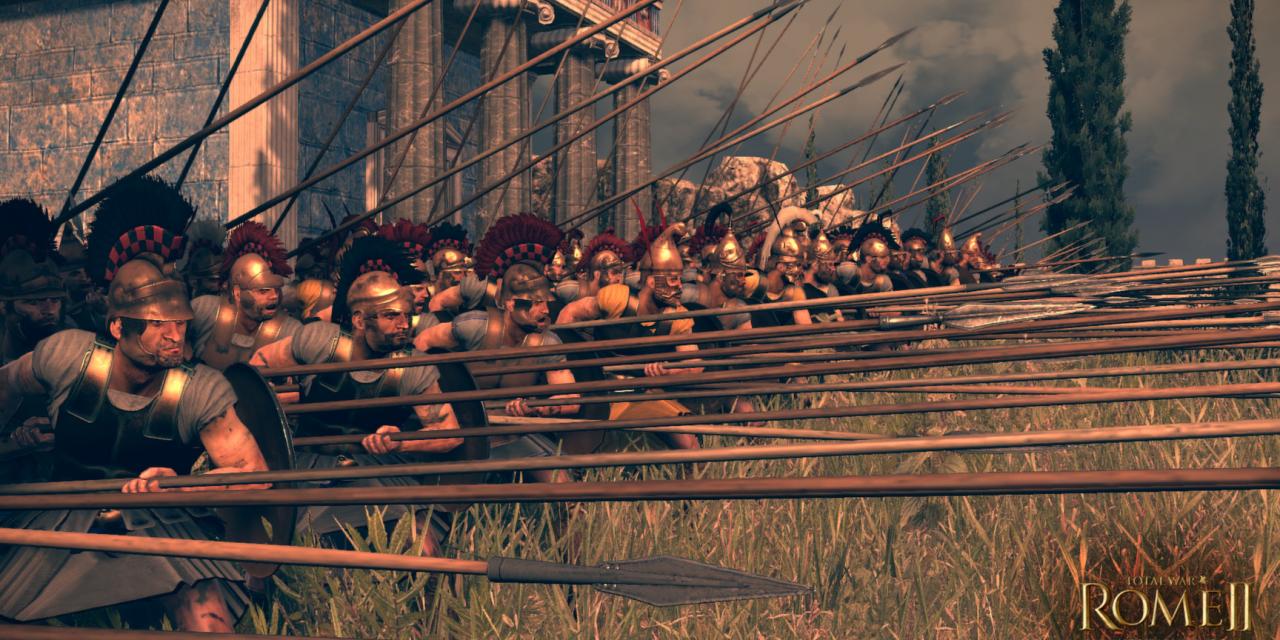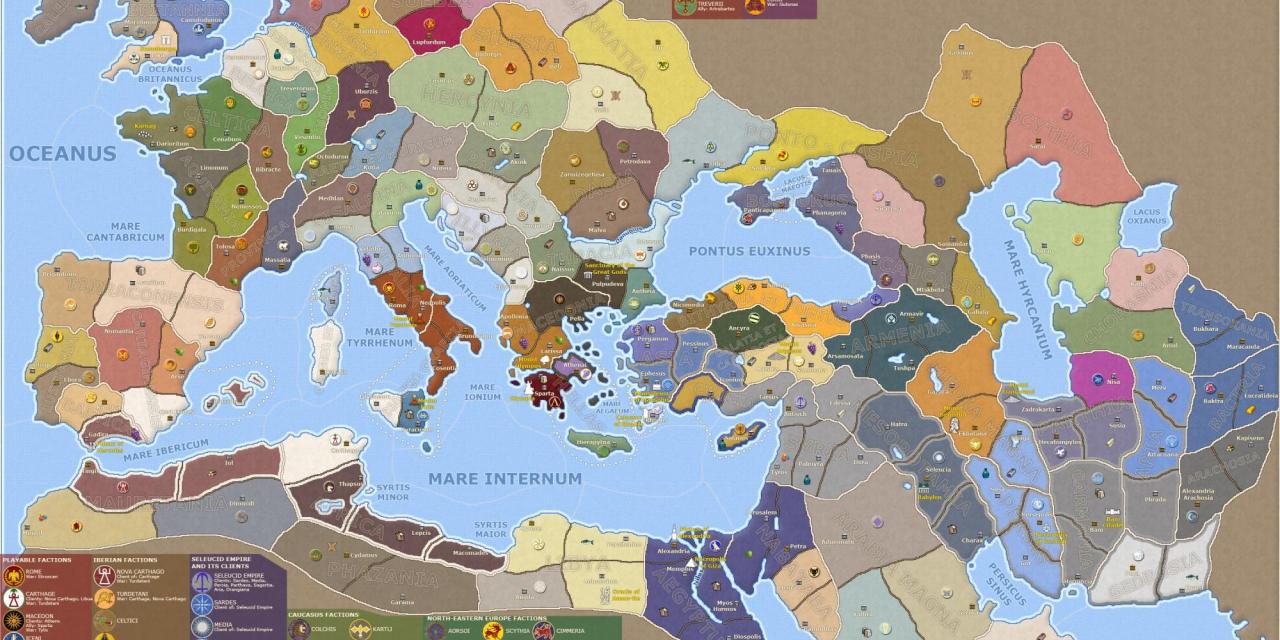

Each of these factions brings a unique flavor and set of tactical options to Total War: Rome II, offering various paths to victory and challenges to overcome. This list is an overview of our top 10 favorite factions with pros and cons of each.
1. Rome
As the title suggests, Rome is often the star of the show. With a powerful infantry and unmatched versatility, they are designed to dominate the battlefield. Rome’s legions are famous for their disciplined formations and heavy armor.
Pros:
- Rome boasts a formidable array of strong infantry.
- Diverse unit roster allowing flexible tactics.
- Powerful economic and military reforms unlock as you progress.
Cons:
- High unit upkeep costs can strain your economy.
- Managing multiple fronts can be challenging due to its central position in the map and powerful enemies (ex: Carthage).
2. Carthage
Famous for it's formidable naval power, Carthage offers a unique challenge. One the most challenging factions to play but also one of the most rewarding. Their access to a variety of mercenaries can turn the tide in any battle.
Pros:
- Strong navy ideal for dominating the seas.
- Access to a wide range of mercenaries.
- Excellent trade capabilities to boost the economy.
Cons:
- Near powerful expansionist enemies, Carthage is a challenging faction to play especially early on in the game.
- Dependence on mercenaries can be costly.
- Vulnerable early in the game without strong native infantry.
3. Egypt
With a mix of hellenic and native troops, Egypt is a powerhouse in both economic and military terms. Their unique position allows them to control crucial trade routes.
Pros:
- Strong and diverse unit roster combining Hellenic and Egyptian units.
- Strategic geographic location.
- Strong economy thanks to lucrative trade opportunities.
Cons:
- Surrounded by enemies, hated by everyone.
- Can be culturally unstable due to diverse population.
- High expectations from population can lead to frequent public order issues.
4. The Seleucid Empire
This faction is a melting pot of cultures and provides one of the most versatile rosters in the game. The Seleucids can field an impressive mix of Greek phalanxes, Persian cavalry, and Indian war elephants.
Pros:
- Extremely diverse unit roster.
- Strong economic base with potential for powerful trade agreements.
- Access to powerful war elephants.
Cons:
- Initially vulnerable to revolts and external threats due to vast but unstable empire.
- Managing a large and diverse empire requires careful balancing.
5. The Arverni
Representing the fierce Gallic tribes, the Arverni are aggressive and hardy warriors with an emphasis on powerful infantry and cavalry.
Pros:
- Strong and aggressive infantry.
- Excellent raiding capabilities.
- Benefits significantly from looting and sacking settlements.
Cons:
- Relatively weak economy.
- Limited access to advanced siege equipment.
6. Parthia
Parthia excels in mobile warfare and hit-and-run tactics. Their horse archers are perhaps the best in the game, making them a nightmare for more traditional, infantry-based armies.
Pros:
- Superior cavalry, especially horse archers.
- Effective at guerrilla warfare.
- Good income from trade routes.
Cons:
- Infantry units are weaker compared to other factions.
- Requires a lot of micromanagement and skill to use effectively.
7. Macedon
Macedon shines with its superb phalanx infantry and strong cavalry. This faction is a powerhouse for players who enjoy classical Hellenic warfare strategies.
Pros:
- Exceptional phalanx units that can hold the line against numerous foes.
- Strong companion cavalry for decisive flanking maneuvers.
- Good position for expansion into the Balkans and Anatolia.
Cons:
- Diplomatically isolated at the start, often surrounded by enemies.
- Economy is robust but requires careful management due to high military expenses.
8. Sparta
If you admire military discipline and elite warriors, Sparta won't disappoint. Focused on heavy infantry, they can outlast many opponents in prolonged engagements.
Pros:
- Elite infantry with high morale and combat effectiveness.
- Excellent defensive capabilities.
- Benefits from a strong cultural influence, boosting stability.
Cons:
- Limited naval capabilities and overall unit diversity.
- Economic development is slower compared to other Hellenic factions.
9. The Suebi
Representing the Germanic tribes, the Suebi are fierce and rugged, specializing in ambush and guerrilla tactics. They thrive in forests and rely on swift, aggressive tactics.
Pros:
- Strong and fast infantry suited for ambushes.
- Can deploy hidden units in almost any terrain.
- Economic bonuses from looting and raiding.
Cons:
- Limited access to advanced military and siege technology.
- Can struggle with public order due to their expansionist nature.
10. Pontus
Situated on the shores of the Black Sea, Pontus is a versatile faction with a mix of Greek, Persian, and Anatolian cultures. They have access to both formidable infantry and unique naval units.
Pros:
- Diverse unit roster capable of versatile strategies.
- Strong naval presence to control the Black Sea.
- Good trade income due to strategic location.
Cons:
- Geographic position makes them vulnerable to multiple fronts.
- Balancing cultural diversity can lead to internal instability.

